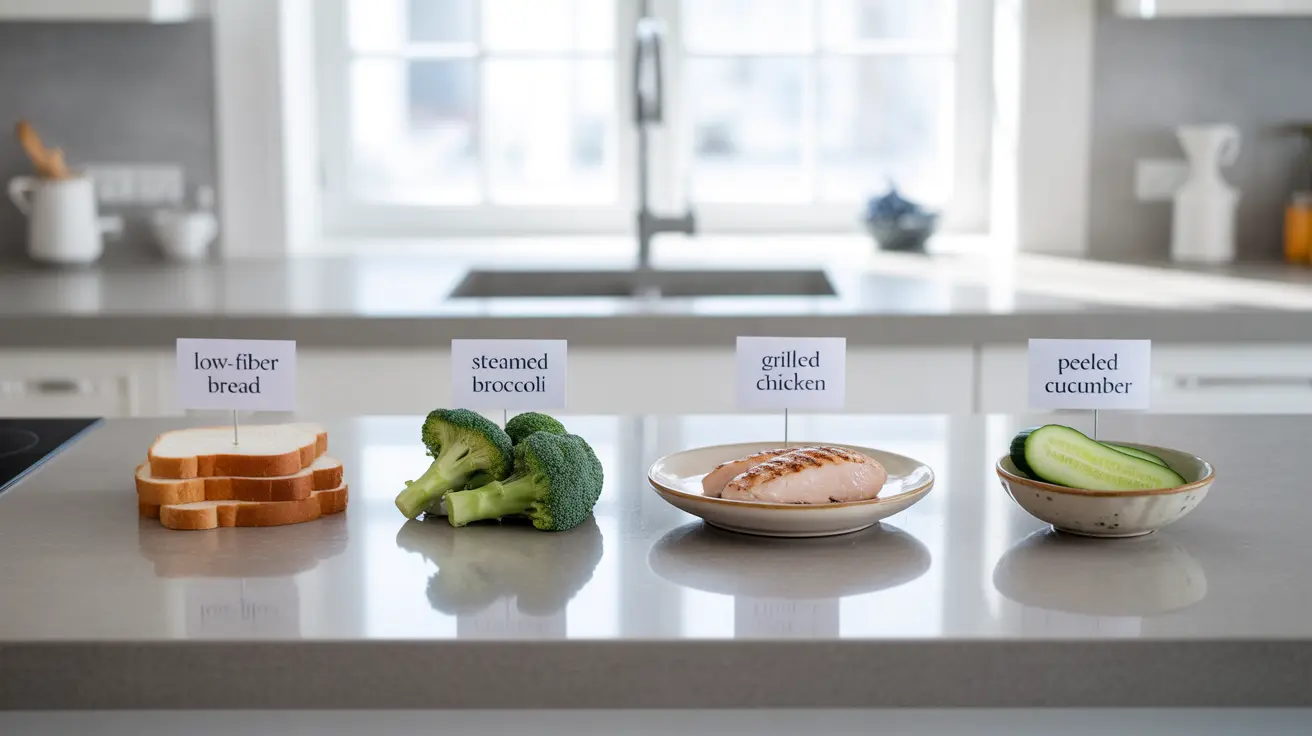Living with ulcerative colitis requires careful attention to your diet, as certain foods can either trigger symptoms or help maintain remission. Understanding how to navigate dietary choices is crucial for managing this inflammatory bowel disease effectively and improving your quality of life.
While there's no one-size-fits-all approach to an ulcerative colitis diet, learning about food triggers and safe options can help you develop a personalized eating plan that works for your specific needs. This guide will explore essential dietary considerations and practical strategies for managing ulcerative colitis through nutrition.
Understanding Food Triggers and Safe Options
Managing ulcerative colitis often involves identifying and avoiding foods that may trigger inflammation or worsen symptoms. Common trigger foods can vary among individuals, but several categories frequently cause issues:
- High-fiber foods (during flares)
- Spicy foods
- Caffeine
- Alcohol
- Processed foods
- High-fat foods
However, during remission periods, you may be able to tolerate a wider variety of foods. It's essential to work with your healthcare provider to determine which foods you can safely incorporate into your diet.
Creating Your Personalized Diet Plan
Developing an effective ulcerative colitis diet plan requires careful consideration of your individual triggers and nutritional needs. Start by:
- Keeping a detailed food diary
- Noting symptoms after meals
- Working with a registered dietitian
- Making gradual dietary changes
- Planning meals in advance
Remember that what works for one person may not work for another, so patience and persistence are key in finding your optimal diet plan.
Safe Foods During Flare-Ups
During active flares, focusing on easily digestible foods can help minimize symptoms while maintaining nutrition:
- Low-fiber white bread and pasta
- Well-cooked vegetables without skins
- Lean proteins like fish and chicken
- Eggs
- Smooth nut butters
- White rice
- Bananas
Addressing Dairy and Gluten Concerns
Many people with ulcerative colitis experience sensitivity to dairy products or gluten. If you suspect these foods affect your symptoms, consider these alternatives:
Dairy Alternatives
- Plant-based milk (almond, oat, coconut)
- Lactose-free products
- Calcium-fortified beverages
Gluten-Free Options
- Rice
- Quinoa
- Gluten-free pasta
- Corn-based products
- Certified gluten-free oats
Meal Planning and Preparation Tips
Successful management of ulcerative colitis often depends on thoughtful meal planning and preparation:
- Prepare meals in advance during periods of wellness
- Keep emergency-safe foods on hand
- Cook vegetables until soft
- Use gentle cooking methods (steaming, poaching)
- Consider meal frequency (smaller, more frequent meals)
- Stay hydrated throughout the day
Frequently Asked Questions
What foods should I avoid with ulcerative colitis to help prevent flare-ups? Common trigger foods include high-fiber foods during flares, spicy dishes, caffeine, alcohol, processed foods, and high-fat meals. It's important to identify your personal triggers through careful food tracking.
How can I create a personalized ulcerative colitis diet plan that works for me? Start by keeping a detailed food diary, working with a registered dietitian, and making gradual changes while monitoring your symptoms. Focus on identifying both trigger foods and safe options that work for your body.
Are there any foods that are generally safe to eat during an ulcerative colitis flare-up? Yes, generally safe foods during flares include well-cooked vegetables, lean proteins, white rice, bananas, and low-fiber breads and pasta. These foods are typically easier to digest and less likely to aggravate symptoms.
Can dairy or gluten make ulcerative colitis symptoms worse, and are there alternatives? Some people with ulcerative colitis are sensitive to dairy or gluten. Alternatives include plant-based milk products, lactose-free options, and gluten-free grains like rice and quinoa. Consider testing your tolerance to these foods individually.
What healthy meal planning and cooking tips help manage ulcerative colitis symptoms? Key strategies include preparing meals in advance, using gentle cooking methods, eating smaller portions more frequently, staying well-hydrated, and keeping safe foods readily available. Focus on simple, well-cooked meals that you know you can tolerate.




